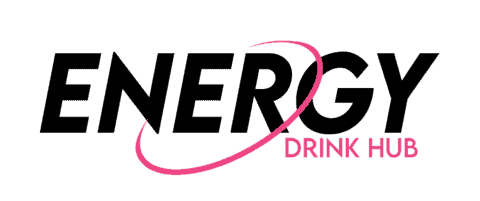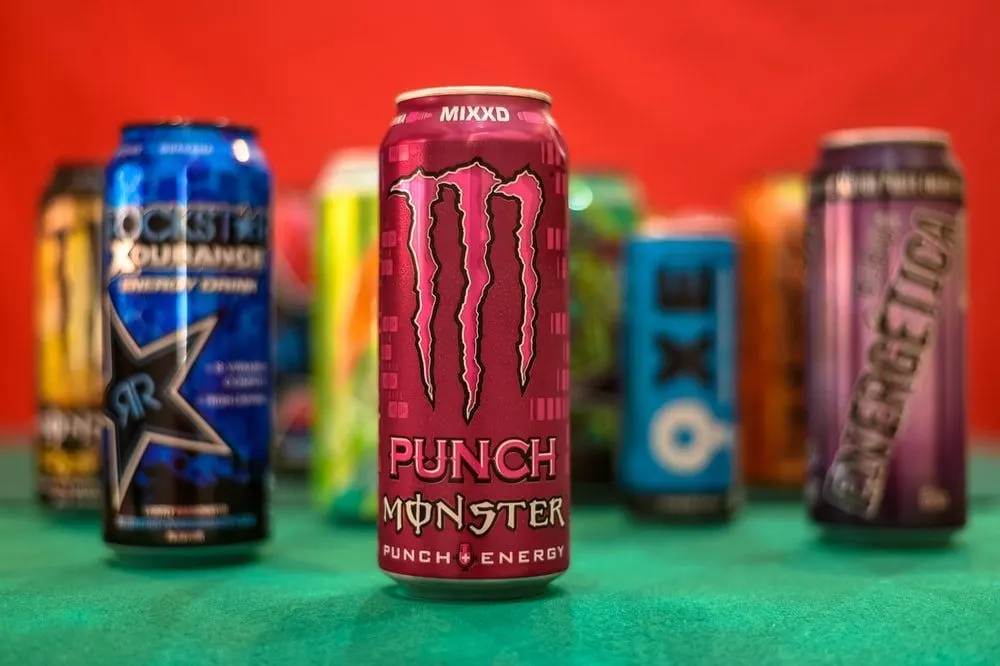
Energy drinks will not help you become sober after drinking.
Caffeine is a stimulant that functions as an energetic component, making you feel more alert. Caffeine, on the other hand, is not a panacea for reversing the physical consequences of alcohol use.
Even if the individual is unaware, alcohol consumption may lead to worse coordination, slower response times, and difficulties managing time and depth of perception.
When we take energy drinks on a daily basis, we may have doubts about their advantages and risks. Despite the fact that they provide you with a plethora of advantages, they also have some drawbacks.
People who wish to remain awake or feel more alert often drink energy drinks. Although the caffeine in them is supposed to be beneficial to your health, many individuals take it as a “pick-me-up” after consuming alcohol.
At gatherings, young people frequently combine them with alcohol. which is harmful and will not help you sober up. So, let’s see if energy drinks can help you stay sober!
Page Contents
Can Energy Drinks Make You Sober?
Store-bought energy drinks will not keep you awake, and they can be deadly when taken with alcohol.
Caffeine has no effect on your body’s alcohol metabolism. Caffeine coupled with alcohol or ingested the morning after drinking has no effect on the amount of alcohol in your breath or blood.
It is difficult to explain because it is dependent on a variety of circumstances, and your body is unique. The answer is most likely no, yet many individuals swear that energy drinks may make them feel better after consuming alcohol.
The fact is that there is no scientific data to back up this assertion.
Caffeine will keep you awake during a hangover, but it will not keep you sober.
| Ingredients | Their Functions |
| Sugar | is an energy source that also improves the palatability of energy drinks |
| Caffeine | is a stimulant that helps keep you awake and aware. |
| Taurine | Taurine is an amino acid that has been found to increase endurance levels and so improve athletic performance. |
| Ginseng | Improves physical performance |
| B vitamins | They aid in the conversion of carbohydrates into glucose for energy generation, as well as supporting healthy skin and hair growth and maintaining correct nerve activity throughout the body. |
| L-Carnitine | converts fat into energy. |
| Glucuronolactone | Normalizing blood sugar levels in the body improves mental clarity. |
Calories In Energy Drinks
The calorie content of energy drinks differs greatly from that of alcohol. While beer might have 150 calories or more per serving, many energy drinks include 50 to 100 calories per serving.
However, this does not imply that energy drinks are a viable substitute for alcohol.
These calories may appear small for a 2000-calorie diet. However, consuming 3–4 cans on a daily basis may cause weight gain.
The use of energy drinks raises the risk of obesity. Energy drinks are often high in sugar, which causes tooth decay, as well as calories, which contribute to weight gain and obesity.
Can Caffeine Help You Become Sober?
Caffeine stimulates and alerts the body in the same way that alcohol does. However, while caffeine may help you stay awake and aware after consuming alcohol, it will not sober you up.
It is not suggested if your objective is to stay awake so you can drive home safely. Caffeine will not boost your chances of functioning well at work or school the next day because it does not remove any alcohol from your system.
Caffeine In Energy Drinks
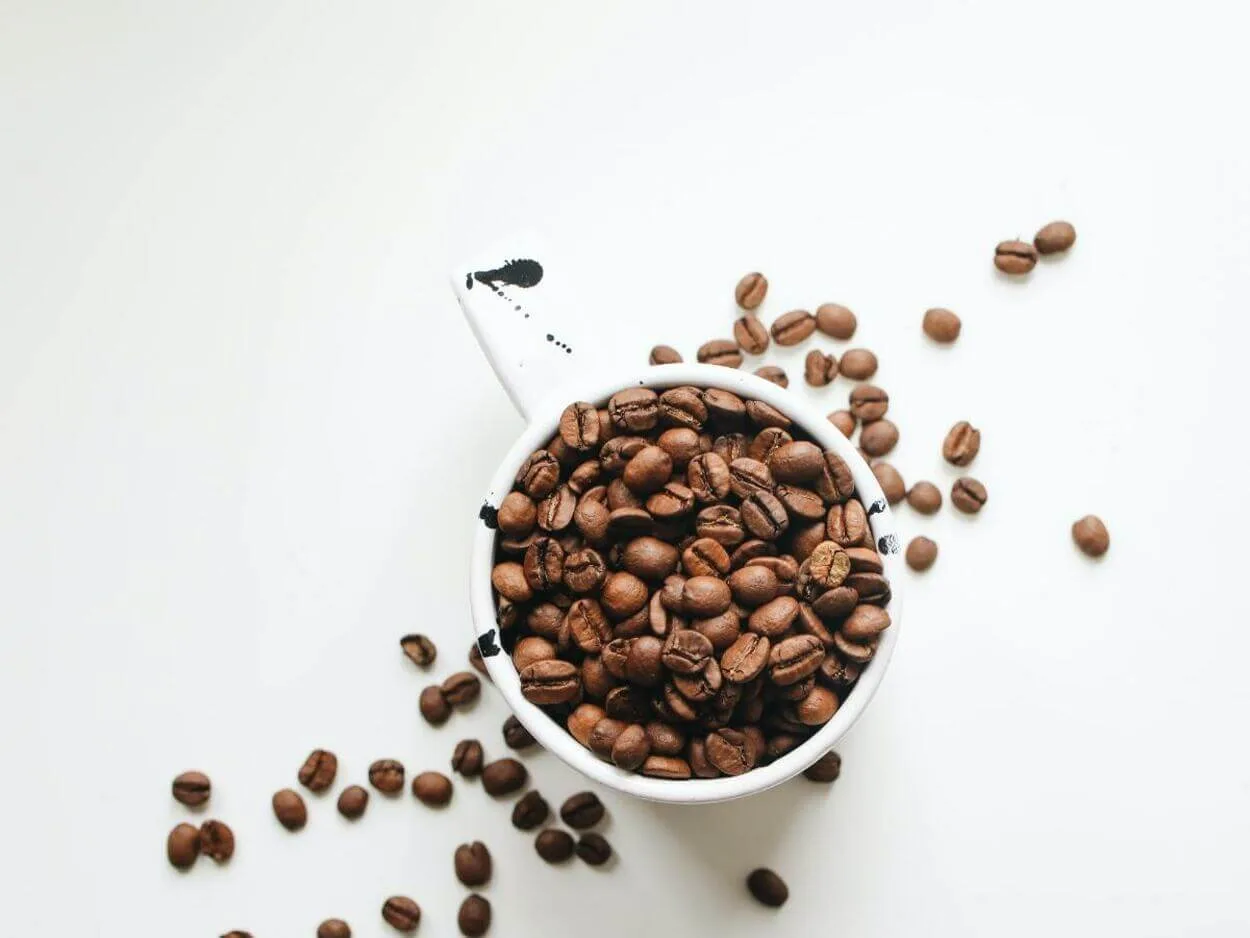
Caffeine is the primary element in energy drinks, and it is a stimulant, which means it stimulates the brain and nervous system.
It also increases the circulation of chemicals like cortisol and adrenaline throughout the body. Caffeine can help you feel energized and alert in small doses.
Caffeine, it has been observed, may even help lessen the chance of some disorders, such as Parkinson’s.
When it comes to caffeine, some people are more sensitive than others. Some people feel anxious or agitated after consuming coffee or energy drinks, while others have no negative effects!
Caffeine use in excess (more than 500 mg) may result in cardiac issues or seizures.
Caffeine overdose is uncommon, although it is possible when huge amounts of caffeine are consumed at once, or when someone with a previous health problem consumes a dangerous quantity of either chemical on its own.
The FDA recommends that you restrict your caffeine use to 400 mg per day. If you drink more than that, you risk:
- Jitters
- Heartbeat irregularity
- Dehydration and excessive urine
- Nausea
- Insomnia
- Hypertension
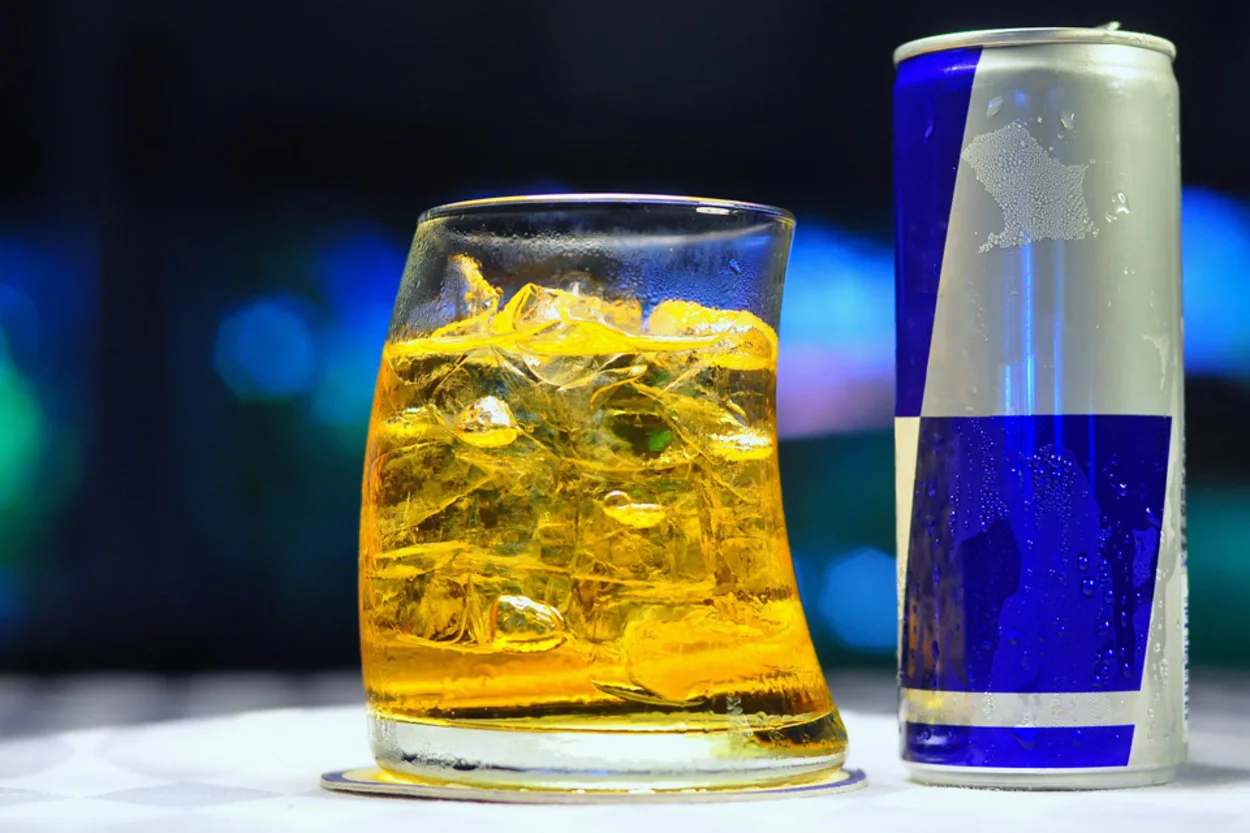
Side Effects Of Mixing Alcohol With Energy Drinks
The FDA does not regulate or assess energy drinks. Despite being on the market long enough for health officials to collect data on their safety, they have recently come under scrutiny due to several fatalities and severe concerns.
So, do the benefits of energy drinks outweigh the drawbacks?
Caffeine in energy drinks hides the depressing effects of alcohol on the consumer. This causes the drinker to be more awake than they would otherwise be. As a result, many drink more alcohol than they should and become “wide-awake drunks,” increasing their risk of alcohol-related disorders.
Caffeine has no effect on the liver’s alcohol metabolism; hence, it has no effect on lowering blood alcohol concentrations (it does not “sober you up”) or lessening impairment induced by alcohol usage.
Alcohol Poisoning
Because coffee makes you feel more alert, you may be more susceptible to alcohol poisoning if you overdose.
An alcohol overdose happens when you consume too much alcohol. Specific areas of your brain become inactive if you ingest more than the recommended quantity (1 drink for women and 2 drinks for men).
When you or a loved one shows signs of an alcohol overdose, seek emergency medical assistance immediately:
- Nausea
- Vomiting.
- Headache.
- Palpitations in the heart.
- Disruptions in sleep (such as insomnia)
- Panic attacks and anxiety.
- Irritation, rage, or aggressiveness against others.
- Depression.
Alcohol Addiction
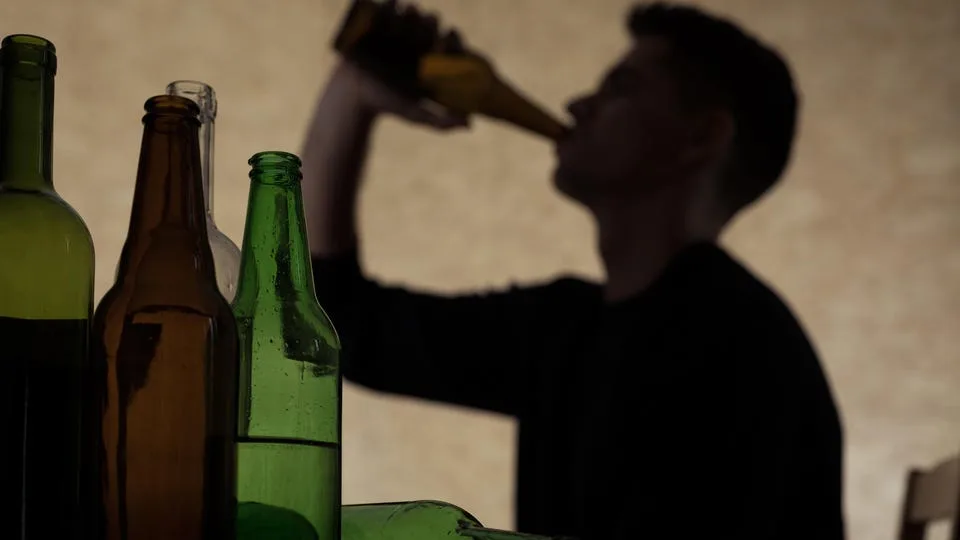
The more alcohol and energy drinks you consume, the more probable it is that you will binge drink. Binge drinking is defined as consuming 4-5 drinks in under 2 hours.
If you consume alcohol and caffeine on a daily basis, you are more likely to develop an alcohol addiction.
The more often you binge drink, the more likely it is that you may develop an alcohol addiction or dependence. If a person has a family history of drinking, this risk rises.
Alcoholism is another major negative effect. It means that your body has gotten so used to the presence of alcohol that it needs it to function.
Alcohol use disorder is described as the continued use of alcohol despite the fact that it creates significant problems in your life. These problems might include:
- health problems
- Interpersonal problems
- Inability to fulfill promises.
FAQs (Frequently Asked Questions)
What can sober you up?
Although a person cannot sober up faster, there are certain methods that can help them feel more awake: e.g sleeping, and Drink Coffee. Drinking a strong black coffee is sometimes suggested by helpful friends as a means of ‘sobering up’.
Does water help you sober up?
Caffeine, exercising, having a shower, or drinking water will not help you sober up, contrary to common belief. There is no way to accelerate this procedure. The only remedy is TIME!
Can you still be drunk after 12 hours?
Your body would have begun metabolizing the alcohol during supper, but it would take 12 hours for all of the alcohol to exit your system. Even if you’ve digested a significant amount of alcohol by 8 a.m., you might still be registered over.
Why do you wake up drunk?
What exactly is sleep intoxication? Sleep drunkenness is a colloquial phrase for confusional arousal, a kind of parasomnia. Parasomnia is a strange activity that occurs when you are sleeping or just waking up.
Confusional arousal is a sleep inertia problem that occurs when your brain switches between sleeping and waking up.
Conclusion:
- Energy drinks will not help you become drunk, and they can be deadly when paired with alcohol.
- Caffeine in energy drinks does not aid in the metabolism of alcohol.
- Caffeine hides the depressing effects of alcohol, making you feel less inebriated.
- Energy drinks coupled with alcohol might lead to an increase in alcohol consumption.
Here you will find more interesting articles about energy drinks:
Buy G Fuel Energy Drink In Canada
ABE Energy Drink Review (Honest details)
